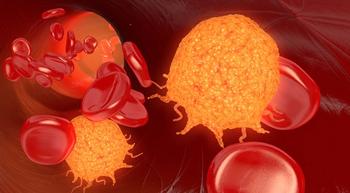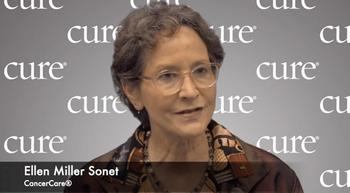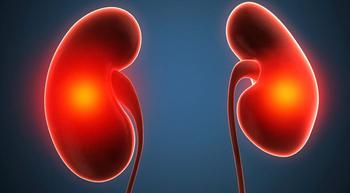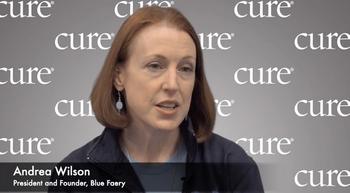
Newer treatments for MCL offer hope to patients living with the fast-growing and challenging-to-treat disease.

Newer treatments for MCL offer hope to patients living with the fast-growing and challenging-to-treat disease.

Mantle cell lymphoma remains incurable, despite researchers’ best efforts. However, new treatment options show promise in the relapsed/refractory setting and may improve patient outcomes if moved to the front-line, according to Dr. Reem Karmali.

The president and founder of Blue Faery: The Adrienne Wilson Liver Cancer Association discussed new initiatives and what’s on the horizon in the treatment of liver cancer.

In assessing the quality of family cancer history entered into electronic health records, researchers found that such reporting was suboptimal – highlighting the need to optimize online collection with a provider-free approach.

Increased tumor mutation burden (TMB), which is associated with more inflammation, may be a factor in determining which patients with lung cancer are at higher risk for depression.

The growing use of immunotherapy in oncology has confronted many community practice-based oncologists with challenges to implementation, but one advocacy group’s new initiative aims to educate and empower.

The financial navigation program at Taussig Cancer Institute provides patient assistance and helps them understand out-of-pocket costs.

Although palliative care has been shown to improve survival rates among patients with metastatic renal cell carcinoma, its utilization remains low while certain barriers and disparities still exist.

With so many cancer treatment options now available, clinicians may still fall short in understanding what’s important to patients.

Maintenance therapy with Imbruvica appeared to be a feasible option for patients with mantle cell lymphoma, according to Dr. Reem Karmali.

An international study of nearly 2,000 patients with renal cell carcinoma exposed many unmet needs across all stages of disease.

Treatment with lisocabtagene maraleucel, also known as liso-cel, demonstrated clinical activity and appeared tolerable among patients with relapsed/refractory mantle cell lymphoma.

Sue Friedman, founder and executive director of FORCE, discussed how a breast cancer diagnosis at age 33 and a family history of cancer led to the creation of Facing Our Risk of Cancer Empowered.

Andrea Wilson, president and founder of Blue Faery: The Adrienne Wilson Liver Cancer Association, spoke with CURE® at the 2019 ASCO meeting about the loss of her sister and how it inspired her to found Blue Faery.

Jennifer King, from the GO2 Foundation for Lung Cancer, discussed what patients can do to help address the stigma associated with lung cancer.

Researchers adapted a screening tool to help treat the whole person during cancer care.

A practice improvement project at the Mayo Clinic helped to increase attention to family health history and identify those at risk for cancer.

The addition of Venclexta to Gazyva induced prolonged progression-free survival – or the time from treatment to disease worsening – among patients with previously untreated chronic lymphocytic leukemia.

The Food and Drug Administration revealed its pilot program, designed to assist oncologists and patients requesting access to unapproved therapies in the cancer space.

After progressing on prior therapy, 44% of patients with locally advanced or metastatic urothelial cancer who were treated with enfortumab vedotin demonstrated a response to treatment, according to phase 2 study findings.

The addition of Kisqali to standard-of-care endocrine therapy significantly improved overall survival for premenopausal women with advanced HR-positive/HER2-negative breast cancer compared with endocrine therapy alone.

The phase 3 POLO trial is the first randomized study to establish a biomarker-driven approach in the treatment of metastatic pancreatic cancer.

Two oncology dietitians weigh in on the results of a recent study that show a low-fat diet rich in fruits, vegetables and grains can reduce the risk of dying from breast cancer.

Using Revlimid as a preventative treatment for smoldering multiple myeloma significantly reduced the risk for the precursor disease to progress into cancer, compared with just observation.

Although there is never the perfect time to have a risk-related discussion with a child, one clinical psychologist explains ways in which parents can approach the difficult topic.

To combat the psychological effects from a lymphedema diagnosis, patients need to be equipped with the knowledge and understanding of what the condition is and how it is treated.

Eva Moon shares nine habits for keeping a sense of humor when the going gets rough.

One expert shares advice for opening the line of communication between patients and health care providers, as well as their partners.

One family shares their experience with the discovery of a BRCA mutation, and how they discussed it among one another.

Exercise and nutrition are essential to improving a variety of facets revolving around the continuum of cancer — from prevention to diagnosis and treatment to survivorship care.